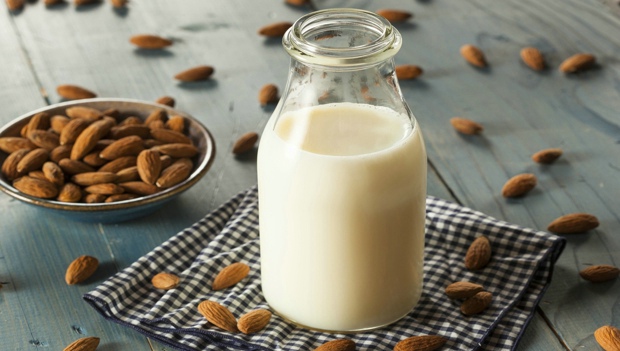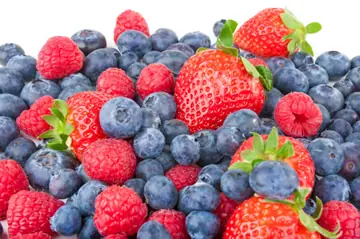
Wondering if it's time to swap your milk? Our nutrition team, Stephanie Clarke, R.D., and Willow Jarosh, R.D., run you through the many options.
Skim
Pros: The cow comes out ahead of the herd if you're in the market for satiating, muscle-building protein.
Cons: It's high in natural sugar from lactose (12 g). And some brands use synthetic hormones, so consider choosing organic.
Nutritional Stats: 90 calories, 0 g saturated fat, 8 g protein, 30 percent calcium, 25 percent vitamin D
More: Get Lean with Protein
Almond
Pros: Almond milk has a nutty hint, but its flavor is fairly neutral overall. It works in both sweet (cereal) and savory (soup) dishes.
Cons: For some reason, it can be tough to find the unsweetened plain version, which has 0 g sugar, in grocery stores.
Nutritional Stats: 40 calories, 0 g saturated fat, 1 g protein, 45 percent calcium, 25 percent vitamin D
Coconut
Pros: If you love whole milk and cream, you'll dig the thick texture. And even in the unsweetened type, the coconut flavor supplies sweetness.
Cons: Like coconut meat, the milk is high in saturated fat; it packs nearly a third of the daily limit for women on a 1,600-calorie diet.
Nutritional Stats: 50 calories, 5 g saturated fat, 1 g protein, 10 percent calcium, 30 percent vitamin D
More: Understanding Healthy Fats in Your Diet
Flax
Pros: Flax milk is the lowest in calories, making it the perfect base for a slimming smoothie snack.
Cons: You won't find any energizing protein here, so it's not the best beverage when you want a sip that gets you going.
Nutritional Stats: 25 calories, 0 g saturated fat, 0 g protein, 30 percent calcium, 25 percent vitamin D
More: To Flax or Not to Flax
- 1
- of
- 2
About the Author









Discuss This Article